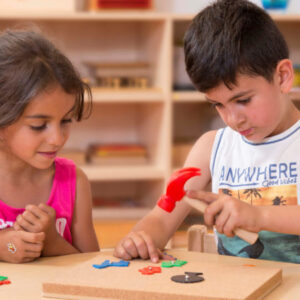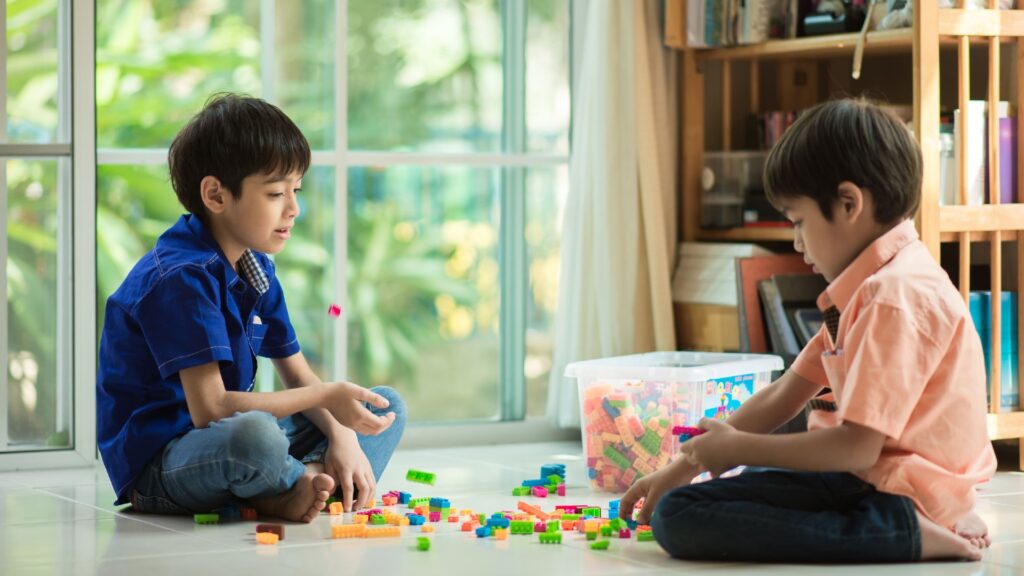Critical Thinking Helps Your Child Make Good Decisions
Children make decisions from a very young age. Initially, these are intuitive decisions, for example, “eat a sandwich” or “play with a toy.” However, in the future, they have to make important decisions about the choice of friends, duly noted, education or career. To make these decisions, your child will need critical thinking skills.
So what is critical thinking? It is a skill that helps a child develop mental flexibility, assimilate new information, and understand complex problems.
Critical thinking helps the child to use existing knowledge and skills in order to creatively solve problems, understand the point of view of other people, form their own opinions, etc. Critical thinking helps children to understand events, compare and contrast information.
In other words, critical thinking and kindergarten sight words provides an answer to the question “how”, not “what” to think.
In this article, we’ll talk about the importance of critical thinking for kids and look at some practical tips to help kids in school and in everyday life.
Why critical thinking is important for children
Before we talk about how to develop critical thinking in children, let’s look at why this skill is important to them.
1. Critical thinking helps children throughout their lives.
Critical thinking and comma before so is one of the thinking skills. It is not associated with any particular area, and therefore remains relevant at any age. The ability to systematically think and solve problems is beneficial in all areas of life.
2. Helps to make decisions.
Regardless of how important the child’s decisions are (such as what game to play, what cartoon to watch, etc.), critical thinking helps him follow his train of thought – think more consistently and systematically – leading to the right decisions. Over time, this leads to the development of independent thinking. Critical thinking also helps the child make decisions based on facts.
3. Encourages creativity.
Critical thinking helps a child solve problems and develop new creative ways to solve them. The child goes out of his comfort zone to find a non-standard way to solve the problem.
4. Arouses curiosity.
If a child has developed critical thinking skills, he will not take information at face value, but will test it and learn more about the concepts and situations that he encounters. While checking the information, the child asks himself questions like “How did I know this?”, “What if this is incomplete or unreliable information?” and so on. So his curiosity develops, and he learns new things throughout his life. Also, the child becomes more attentive to details – this helps to understand things better.
5. Develops the ability to adapt and solve problems.
People who have developed critical thinking think systematically, so they are able to successfully solve problems. Critical thinking allows you to analyze situations, make informed decisions, make objective judgments, and take action to solve problems.
Also, critical thinking is one of the main skills that allows children to think outside the box and adapt to changes.
How to develop your child’s critical thinking skills?
Here are some tips to help your child develop critical thinking skills.
1. Teach your child to read
Reading is of immense benefit. It develops the child’s reading comprehension skills, vocabulary, stimulates his mental capacity and develops organizational skills. When a child tries to understand what the author of the book wanted to say, he evaluates and analyzes what he read. When a child reads, he is introduced to many ideas that make him think. He also develops imagination, which also promotes critical thinking.
2. Encourage your child to play games
Play is the main way children learn and develop. When a child plays, he develops his skills. When he builds a house from Lego or puts together a puzzle, the child understands how things work. Games make the child think. When you allow your child to play, you enable him to learn about cause and effect in the world. For example, if in the course of the game he comes to an undesirable result, he may try to play the situation in a different way. Thus, the child learns to solve problems. This hands-on experience forms the basis for critical thinking that develops later in life.
3. Ask open-ended questions
Questions are a good way to get your child thinking about something. Instead of asking questions that the child can give monosyllabic answers (“yes” or “no”), use open-ended questions, which will require detailed answers from the child. This will force him to analyze and think before giving an answer.
If the child asks you something, ask him questions back. For example, you might ask a child, “Why do you think this happened?” or “What would you do in this case?” This will force the child to show critical thinking. Sometimes his answers will not meet your expectations, but in any case, you need to respect his answers.
4. Be patient and wait
If your child takes longer than usual to complete a task, wait. Otherwise, the child will not learn to think independently. Give him time to think about your answer. Perhaps he will need to clarify something with you. If you give him enough time, he will learn to solve problems on his own.
5. Develop creative thinking
Critical thinking involves the perception of information, its analysis and making informed decisions. Encourage your child to view problems from different perspectives and come up with different solutions. This will help him develop creativity and critical thinking skills.
6. Summarize
Taking stock has many benefits for developing critical thinking in a child. Summing up, children learn to highlight the most important information and summarize it in a concise manner. Create activities for your child to summarize. For example, if he has read a story or chapter from a book, invite him to briefly retell it or describe the characteristics of the protagonist. This will help them remember what they have read and put their critical thinking skills into practice.
7. Teach your child to evaluate information
Often a child receives a large amount of information in a short period of time. By evaluating the information and analyzing it, the child can determine its importance and reliability. In addition, the child can evaluate the source of the information: how important he is and whether he can be trusted.
